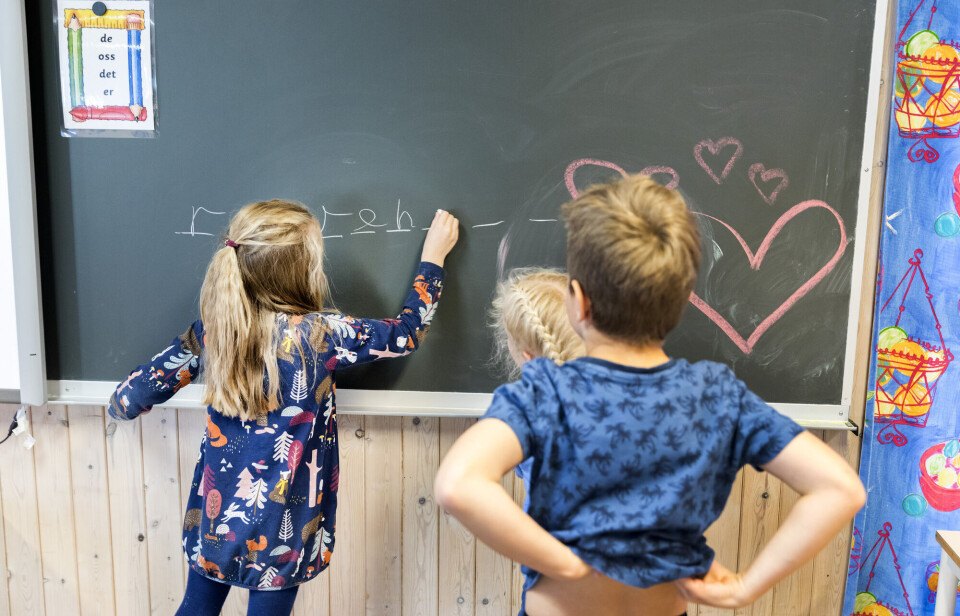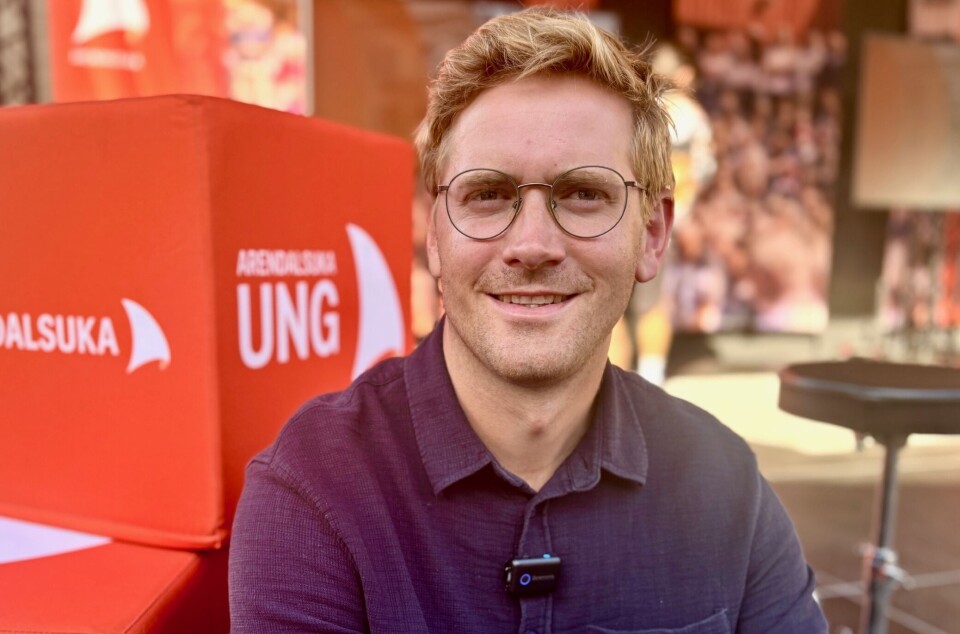Schoolchildren born late in the year needed much more support
Half of all first graders referred for support were born late in the year – none in the first three months. A Norwegian municipality is now taking action.

The start of the school year is usually filled with excitement and joy in Norwegian schoolyards. Yet, many children begin struggling from the very first day.
"They spend more time under the desk than above it. They run around the classroom when the teacher is trying to talk," psychologist specialist Simen Mjøen Larsen recently said at a public event in Arendal.
He and his colleagues in the Educational Psychological Service (PPT) in Tønsberg municipality know that many of these first graders will be referred to them as autumn progresses.
In recent years, the number of referrals has risen sharply.
More referrals to PPT
When PPT looks at the numbers, the trend is striking:
- 50 per cent of first-grade referrals are children born in October, November, or December.
- None are born in January, February, or March.
In general, more children and young people report mental health problems. There is more school refusal and poorer academic skills.
"But many of the first graders referred to us are simply not mature enough. They struggle to sit still. They would rather be doing something else," said Larsen.

The right to adapted education
Schools are legally required to help these children. That's why PPT must be brought in.
"When schools worry that a child isn't benefiting from lessons, that child may have the right to individually adapted instruction – what used to be called special education," said Larsen.
At that point, PPT steps in as an independent body.
"In quite a few of these cases, we simply need patience, while also addressing the immediate challenges. Often, things resolve on their own as the child matures," he said.
Believes education policy overlooked children's needs
Larsen believes the system itself is flawed.
"There will always be children who genuinely need our support. But we're under pressure, and right now we spend huge resources on children who wouldn't really need us if schools were structured differently," he said.
For decades, education policy has paid too little attention to what research tells us about children, according to Larsen.
“Children learn best through play. They need to touch, see, and experience what they're learning. They struggle to learn by sitting still and listening to an adult,” he said.
Even so, schools have moved more and more in the direction of drills, testing, and performance targets. That shift, Larsen argues, ignores what research shows about children's needs and how they actually learn.
A reform that missed its goal
Most viewed
When Norway lowered the school starting age to six in 1997, called the six-year-old reform, the goal was a smooth transition from kindergarten to school, with learning rooted in play.
But that did not happen. When the reform was evaluated, the smooth transition from kindergarten to school was hard to spot.
With the 2006 Knowledge Promotion Reform, play was pushed even further aside, according to the evaluation of the six-year reform (link in Norwegian). It was replaced by learning, testing, and target-setting.
Tønsberg brings back play
Tønsberg municipality is now trying a new approach. In a pilot project, first graders at four schools spent half the school day playing, with no baseline assessments at all.
The results were so positive that starting this autumn, every school in Tønsberg will adopt the same model for all first graders.
Three researchers have followed the project Lekende Lett Skolestart (Playful Easy School Start).
One of them is Hilde Dehnæs Hogsnes, associate professor of educational science at the University of South-Eastern Norway (USN).
She told forskning.no (link in Norwegian) that the project ensures the development of core skills and fulfills curriculum goals.
"At the pilot school we studied in Tønsberg, it became clear that it's important for the staff to be closely involved in the play. Even if the children don't always perceive it that way," said Hogsnes.
Just as strong academic results
Simen Mjøen Larsen also finds that many teachers have benefitted from the pilot project.
"Some teachers say they can now go to work without feeling so guilty about everything they haven't manage to do," he said.
“And across all four schools, teachers report that students reached the same or higher academic levels, even though one school postponed traditional lessons until after Christmas. By summer, those students were actually slightly ahead,” he said.
When biology is ready, learning comes more quickly and with less resistance, the municipal psychologist maintains.
———
Translated by Alette Bjordal Gjellesvik
Read the Norwegian version of this article on forskning.no
Related content:

Subscribe to our newsletter
The latest news from Science Norway, sent twice a week and completely free.

























































